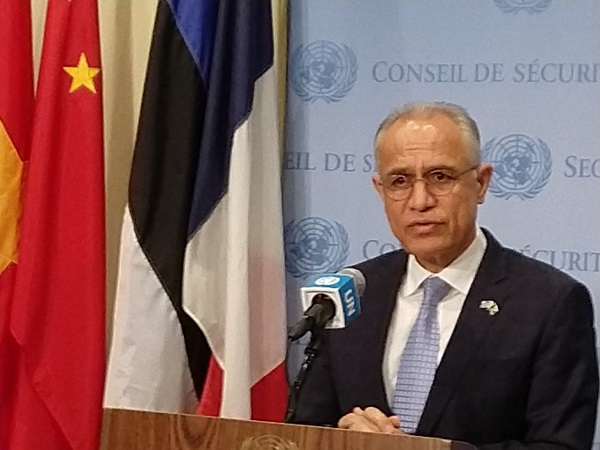United Nations, (Samajweekly) Afghanistan’s Permanent Representative Ghulam Isaczai has defied the Taliban government and denounced its overthrow of the elected government and use of violence to reinstall the “so-called Islamic Emirate.”
Speaking at the General Assembly on Tuesday as the Taliban-controlled government was trying to settle in, Isaczai said asked the international community to reject the Taliban as the rulers of Afghanistan.
“They continue to choose war over peace as a way of resolving their differences with those who oppose them as we are witnessing their brutal offensive against the people of Panjshir and suppression of women peacefully demonstrating across cities in Afghanistan,” he said.
“The Taliban unseated the elected Government of Afghanistan and gained power through violence and are seeking to reinstate their so-called Islamic Emirate, in violation of the resolution passed by this Assembly less than nine months ago,” he said.
Isaczai, who was appointed as the country’s representative at the UN by ousted President Ashraf Ghani and presented his credentials in July, continues to represent the country under UN rules.
The Taliban, which overran Afghanistan and took control of Kabul on August 15, announced on Monday a hardline government with Mohammad Hassan Akhund as Prime Minister and excluding women.
Secretary-General Antonio Guterres’s Deputy Spokesperson Farzan Haq said that member countries recognise governments and not the UN.
The General Assembly’s credentials committee, which determines who represents a country, can take up Afghanistan’s representations when it meets next week. Isaczai said, “We ask that you continue to reject the reinstatement of the Islamic Emirate.”
Currently, there is another country, Myanmar, that is represented by the envoy appointed by an ousted government.
Even though the military government has said that U Kyaw Moe Tun has been replaced as the permanent representative by its nominee Hau Do Suan, only Kyaw who was appointed by of State Counsellor of Myanmar Aung San Suu Kyi continues to be recognised by the UN as the country’s envoy.
At the General Assembly, he had denounced Tatmadaw, the military regime in Myanmar, calling on the international community to act to make it “stop oppressing the innocent people, to return the state power to the people and to restore the democracy.”
Speaking at the General Assembly’s High-level Forum on the Culture of Peace, Isaczai said, “The Afghan people, especially our youth who have only known a free and democratic Afghanistan, will not accept a governing structure that excludes women and minorities, eliminates constitutional rights for all, and does not protect the gains of the past.”
Asking member nations “to help us promote a Culture of Peace in Afghanistan,” he said the to “hold the Taliban to account for their violations of international human rights and humanitarian law, insist on an inclusive government, and draw a fundamental red line regarding the Taliban’s treatment of women and girls, and respect for their rights.”
The UN and the international community face the dilemma of dealing with the Taliban because it is on the UN’s list of terrorist organisations.
Martin Griffiths, the Under-Secretary-General for Humanitarian Affairs, who met with Taliban leader Abdul Ghani Baradar on Monday, told reporters in a remote briefing that UN dealing with the Taliban on humanitarian issues does not amount to recognising it.
Talban’s desire for recognition is the only leverage that the international community has, Guterres has said.
He will be convening a high-level ministerial humanitarian meeting on Monday in Geneva to aid Afghanistan, Haq said.
The UN Office for the Coordination of Humanitarian Affairs (OCHA) is appealing for $606 million to help Afghanistan.










